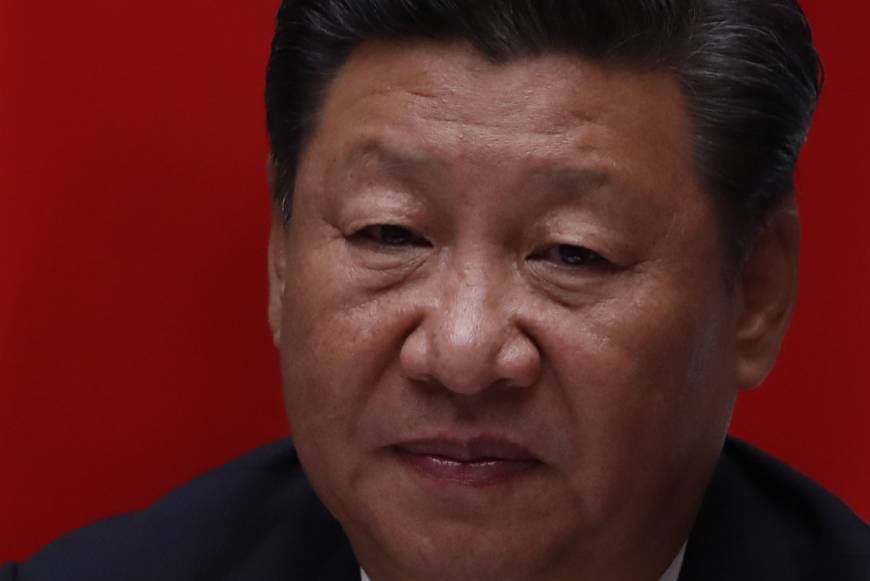Even as the Chinese President Xi Jinping has stepped up efforts to become China’s tallest leader in history, his Presidency run has been marred by some recent events like the failing Belt and Road Initiative, Hong Kong pro-democracy protests and his government’s oppression of Uyghur Muslims. Xi Jinping has had a highly embarrassing week which has undermined China’s power.
Recent events suggest that not all is well within the Chinese Communist Party. Recent NYT leaks have exposed how the Communist Party’s brutal crackdown on the Uyghur Muslims with the 403 pages document leaked by a senior party source implicating Jinping of having a personal grudge against the Uyghur Muslims. Over the past three years, China has detained over a million ethnic Kazakh and Uyghur Muslims into what they claim are ‘internment camps’. It is believed that Xi Jinping’s direct role in this ruthless campaign to lock up Muslims is at the root of a sense of division that has gained ground within the Communist Party. There is growing resentment against this clampdown and continued offensive in Xinjiang.
The NYT leaks have come as a major embarrassment to the Chinese President. What makes matters worse for Xi Jinping is the fact that at least one senior official of the Party was involved in the embarrassing leak. This again suggests that the Chinese Communist Party is facing a deep-rooted divide and is sitting at the edge of an eventual split. .
In what further corroborates a sense of disagreement within the system, there have been reports about defection of a Chinese spy, Wang Liqiang. He told Australian authorities that he worked in Hong Kong as a spy for the Chinese military intelligence. He has also disclosed that he was tasked with interference in Taiwan’s 2020 elections with the aim of bringing down independence-minded president, Tsai Ing-wen. This report of defection of the Chinese who claims that he has worked in Hong Kong for Chinese military intelligence becomes an even bigger embarrassment for Beijing as it coincides with a landslide victory for Pro-Democracy candidates in Hong Kong’s local elections. The Pro-Democracy have won 347 out of 452 seats, pro-Beijing candidates have been reduced to 60 seats and independents have secured 45 seats. Even many of the independents are actually pro-Democracy.
The spectacular victory of the pro-Beijing candidates will help them in taking control of 17 out of 18 district councils, a great setback for Beijing. Even though the district councillors deal with local issues, the poll results have really come as a stinging repudiation of Beijing and its recent efforts to exercise greater control in the semi-autonomous territory of Hong Kong. This is in turn going to fuel greater disillusionment within the system and is not going to help the ongoing crisis that Xi Jinping has to deal with.
Currently, China is standing firmly behind Hong Kong’s Chief Executive, Carrie Lam. However, there is also a popular opinion which is somewhat opposed to Lam. Some say that Lam and her government should have taken sterner action against protests before they resulted in the weekend’s election. Li Xiaobing, head of a center dealing with Hong Kong at Nankai University in Tianjin, south of Beijing, said, “The Hong Kong government has been quite soft and mild in its actions.” He also said, “The Hong Kong government should have taken specific measures to target the opposition, but apparently it did not, and instead the opposition took the opportunity to climb all over the Hong Kong government.”
To make matters worse for Xi Jinping, the US-China trade war shows no signs of an end. US President Donald Trump does not seem to be willing to back down. This is another point of internal pressures within the Chinese leadership. According to Christopher Balding, an American professor at Fulbright University Vietnam, “It’s not crazy to think, based upon the evidence that we have, that there is some degree of infighting within the Chinese government about how to respond and how the Chinese government should behave.”
It is pertinent to mention here that a couple of years ago, TFIPOST had also elaborated the issue of split and factionalism within the Chinese Communist Party. TFIPOST had then reported that the unity within the Chinese Communist Party is shattering as all the three factions (Shanghai, Beijing and Zhenjiang) in the party are embroiled in a feud. The Shanghai faction is led by Jiang Zemin, Beijing faction is led by Hu Jintao and Zhenjiang faction is led by President Xi Jinping himself. Each one of the three has been trying to nullify the influence of the other faction. In the background of this factionalism, Jinping has tried to build himself as China’s tallest leader. Carrying out a massive image building exercise he has tried to roll out a personal cult for himself through his propagation of “Xi Jinping Thought”, something that has been seen for the first time since the reign of Mao Zedong. He has also removed term limits in his ambition to remain at the helm of affairs in China indefinitely. However, recent events show that he is not really in control of affairs.
There is already a sense of division within the CCP that Xi Jinping is battling. The triple whammy of this week has further brought down his credibility and these events are not going to go down well within the CCP. Recent events also show how his rivals are actually making matters worse for the Chinese President, it seems that the great China split is inevitable from here and Xi Jinping’s downfall is going to be the epicentre for this major split.
